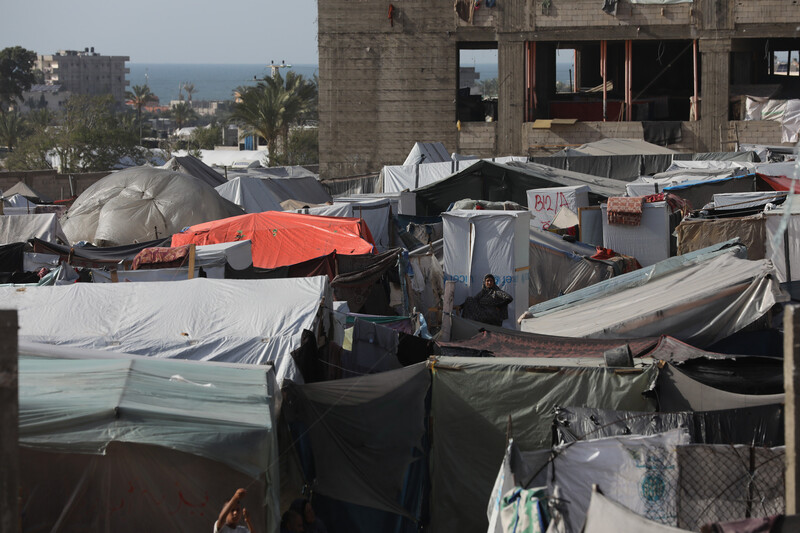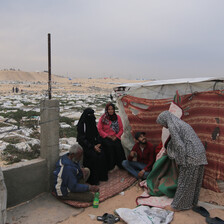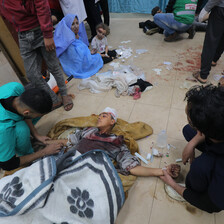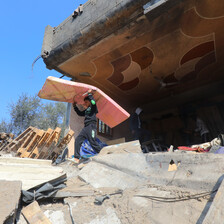The Electronic Intifada 23 May 2024

After giving birth, displaced women frequently have to live in tents.
APA imagesPregnant women in southern Gaza have only had access to three hospitals recently.
Two are located in Rafah: al-Helal al-Emirati hospital and a field hospital run by the International Medical Corps. The third is Nasser Medical Complex in Khan Younis, which has resumed some services after coming under a major Israeli attack.
When Israel invaded Rafah earlier this month, many medical staff evacuated, fearing for their lives.
A very small number of doctors remained at al-Emirati hospital to deal with extremely critical cases. Other patients were transferred to the field hospital, which is located in another part of Rafah.
On the first day of the invasion, 25 babies were born at the field hospital. It does not have the capacity to deal with that number of births.
As Israeli troops had not yet reached the area surrounding al-Emirati hospital, some doctors returned to work there a few days after the invasion began. Yet the hospital continued to have fewer staff than previously.
There are many distressing stories to be told about its patients.
Amal was brought to al-Emirati hospital in an ambulance after being rescued from under the rubble of a building that had been attacked.
Fortunately, both she and the baby in her womb were unharmed.
Her baby was nonetheless born prematurely following an emergency cesarean section.
After leaving the hospital, she went to Khan Younis. She had to take shelter in a tent.
Conditions are extremely harsh. Among other things, she has to wait in a long line so that she can use the bathroom.
Fidaa’s husband and son were killed in an Israeli airstrike on her home. Soon after that terrible crime, Fidaa – who was pregnant – was brought to al-Emirati hospital.
I will never forget Fidaa. She was barefoot and her clothes were stained with blood.
She was reluctant to stay in the maternity ward. Another one of her children had been severely injured and required surgery.
Eman has been married for 14 years but had not been able to conceive a child. After three attempts, she got pregnant through in vitro fertilization.
Eman could no longer feel her baby moving in her womb, so we did an abdominal ultrasound at the hospital.
I had the grim task of informing Eman that she had miscarried.
I cannot forget the shock and sadness on her face.
It was difficult for me to break the sad news. But I had to do it.
The situation at al-Emirati hospital offers a vivid example of how healthcare facilities have been placed under unbearable strain by Israel’s war.
The war must end.
Dr. Areej Hijazi is an obstetrician from Gaza.




